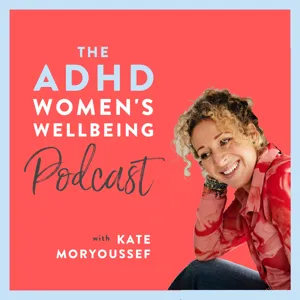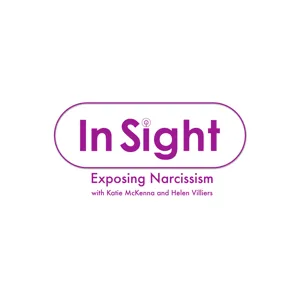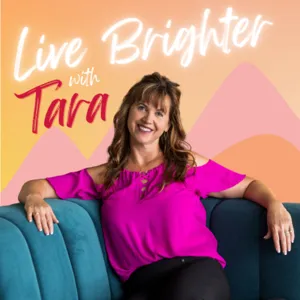Podcast Summary
Understanding the Complexity of Narcissism and Its Impact on Women with ADHD: Narcissism exists on a spectrum, can lead to emotional harm, affects 0.5-1.6% of population, often hidden due to stigma, and understanding its impact on childhoods is crucial for healing as women with ADHD
Narcissism, or Narcissistic Personality Disorder (NPD), is a complex condition that exists on a spectrum, just like ADHD. Narcissism is not limited to extreme cases of psychopathic behavior, but it can also manifest in more subtle ways. The condition is characterized by traits such as grandiosity, entitlement, exploitation, motivational empathy, and impaired self-awareness. These traits can lead to significant emotional harm and trauma, especially in childhood. The prevalence of NPD is higher than many people think, with estimates suggesting it affects between 0.5% and 1.6% of the general population. However, due to the stigma and shame associated with the condition, many people with NPD avoid seeking help or assessment. It's essential to understand that people with NPD are aware of their behavior and may even hide it from others. This awareness can make it challenging to identify and address the impact of narcissistic abuse and trauma. As women with ADHD, it's crucial to be aware of the potential overlap between these conditions and the ways in which they can impact our lives. By understanding narcissism and its impact on our childhoods, we can begin the healing process and live more fulfilled, calm, and purposeful lives.
Understanding complex behaviors in individuals with personality disorders: Personality disorders can lead to harmful behaviors, but acknowledging the need for change and practicing compassion can help navigate relationships and heal from past experiences
Individuals with certain personality disorders, such as those with borderline or narcissistic traits, may not acknowledge or accept the need for change in their behaviors, even if those behaviors are harmful to themselves or others. They may manipulate situations to their advantage and use different presenting styles, either overtly dismissive or covertly manipulative. Furthermore, the concept of parentification, which refers to a child taking on inappropriate adult roles, can lead to emotional, instrumental, or narcissistic forms of parentification, all of which can be damaging to the child's development and autonomy. Understanding these dynamics can help us navigate complex relationships and heal from past experiences. However, it's important to remember that everyone's experiences are unique, and diagnosing and assigning blame can be challenging. Instead, compassion and forgiveness may be key to healing and moving forward.
Healing from generational or childhood trauma: Acknowledge harm, accept responsibility, encourage validation, and work towards forgiveness and healing.
The process of healing from generational or childhood trauma involves acknowledging the harm caused and accepting responsibility. It doesn't matter what specific conditions were involved, be it autism, ADHD, MPD, or any other neurodivergence. The focus should be on the impact of the actions and the willingness of the responsible party to take responsibility and make amends. For those struggling to heal due to a lack of validation or apology from a parent, education and self-awareness are important steps. However, the ultimate goal is to encourage the parent to acknowledge the impact of their actions and take responsibility. This can lead to the possibility of compassion, forgiveness, and healing. It's essential to remember that the reason behind the harm does not diminish the fact that it occurred and caused pain.
Understanding Gaslighting and Motivational Empathy: Gaslighting and motivational empathy are manipulative behaviors used to avoid accountability and silence victims. Validate your own experiences and emotions for healing.
Gaslighting is a manipulative behavior where a parent denies, minimizes, or dismisses a child's experience while trying to elicit empathy to avoid accountability and responsibility. Motivational empathy is a specific form of emotional manipulation where a person uses guilt, obligation, and fear to make someone change their behavior against their will, often silencing them in the process. It's essential to recognize these patterns and understand that healing comes from validating our own experiences and emotions, not from an apology or forgiveness from the abuser.
Healing from abuse without validation or apologies: Acknowledge and validate own experiences, healthy anger ok, but avoid resentment, recognize choices and consequences, and prioritize self-care
Healing from abuse does not require validation or apologies from the abuser. It's essential to acknowledge and validate our own experiences, even if the abuser does not admit wrongdoing. Healthy anger towards the mistreatment is valid, but resentment is a sign of self-betrayal. If we find ourselves in situations where we cannot avoid interacting with the abuser, such as in familial relationships, we must recognize that we have choices, even if they come with consequences. We can set boundaries, engage minimally, and prioritize our own well-being. It's crucial to remember that we are not powerless and that acknowledging our choices and their potential consequences can help us navigate challenging situations.
Generational gap in understanding psychological terminologies: Acknowledge progression of society and understanding, even if some may not want to revisit past traumas. Ignorance is not new knowledge.
We are in a generational gap when it comes to understanding and acknowledging the psychological terminologies and their impact on our upbringing. While the younger generation is becoming increasingly aware of terms like parentification, toxicity, narcissism, gaslighting, and emotional unavailability, the older generation may not fully grasp these concepts. This can lead to difficult conversations and misunderstandings. However, it's essential to be mindful of ignorance and weaponized ignorance. Not understanding these concepts doesn't make it new knowledge, and past generations have also had their challenges in raising children. It's important to acknowledge the progression of society and understanding, even if some may not want to revisit their past traumas. Additionally, it's crucial to remember that we had resources and knowledge about attachment and child development even in the past, and the wider understanding we have today is a result of ongoing research and societal progression.
Accountability and responsibility for harmful behavior towards children: Recognize and address harmful behavior towards children, seek therapy, increase self-awareness, and hold oneself accountable in healthy ways to prevent passing on trauma to the next generation.
While some people may not be fully aware of the wider impact of their actions on their children, they cannot deny accountability and responsibility for harmful behavior towards their kids. The use of sanitized language to describe their actions, such as calling it emotional immaturity, can gaslight and silence victims. This behavior is often a result of growing up in systemic trauma that was normalized to their generation. The nature versus nurture debate suggests that trauma is the primary cause, but there may also be a genetic element. It's crucial to acknowledge the trauma, take responsibility, and do the work to heal and prevent passing it on to the next generation. This includes seeking therapy, increasing self-awareness, and holding oneself accountable in healthy ways. People who grew up in such environments may describe themselves as conflict-averse, people-pleasers, or empaths, but it's essential to recognize and address the underlying harmful behavior.
Healthy Communication in Relationships: Respecting Boundaries and Clear Communication: Respecting 'no's' and clear communication are vital for healthy relationships. Empathy and attunement differ from controlling behavior and hypervigilance. Distinguish between preferences and boundaries, and avoid manipulative indirect communication.
Clear communication and respecting boundaries are essential for healthy relationships, especially for individuals with ADHD, autism, or a history of abuse. Empathy and attunement are not the same as hypervigilance or controlling others' behavior. A child's "no" is an essential form of communication, and it's crucial to respect it from an early age. In adulthood, it's important to distinguish between preferences and boundaries. Direct communication is key to maintaining healthy relationships and avoiding misunderstandings. Indirect communication and motivational empathy can feel manipulative and may require the other person to leave the relationship for their own safety. It's essential to understand these communication styles and strive for clear, respectful interactions.
Impact of Enmeshment and Infantilization on Child's Development: Excessive parental dependence and control can hinder a child's autonomy and independence, leading to unhealthy codependent relationships and impaired adult functioning.
The dynamics of family relationships, particularly those involving enmeshment and infantilization, can significantly impact a child's development into adulthood. Enmeshment occurs when a parent relies excessively on a child for emotional support, creating an unhealthy dependence and limiting the child's autonomy. Infantilization, on the other hand, is the excessive control and overprotection of a child, often resulting in the child's inability to function as an adult. This dynamic, often seen in the relationship between a narcissistic parent and a golden child, can lead to a codependent relationship, setting the child up for failure in future relationships and reinforcing the parent's sense of superiority. It's important to recognize these patterns and encourage healthy, independent growth in children. However, it's also important to remember that every family is unique, and these dynamics can manifest differently in various contexts.
Understanding and Healing from Toxic Relationships: Recognizing and healing from toxic relationships is essential for personal growth and fostering healthy connections. Acknowledge the impact of narcissism and emotional abuse, and seek knowledge and resources to empower yourself.
Facing and feeling the grief of letting go of toxic relationships, despite the pain, is essential for healing and fostering healthy relationships. This concept, often referred to as "toxic hope," can be difficult to accept, especially when we're conditioned to believe that certain relationships are important. However, understanding and acknowledging the impact of narcissism and emotional abuse is crucial for personal growth and empowerment. By sharing knowledge and resources, such as books, podcasts, and support groups, we can help make healing accessible to more people. Recognizing patterns of entitlement and other toxic traits in relationships is an essential step towards breaking free and embracing healthier connections.
Healing from Childhood Roles Reversed with Practical Tools: This book provides practical exercises and tools to help those who grew up with overly involved parents understand, heal, and set healthy boundaries.
The book "Parentification: A Practical Guide for Healing from Childhood Roles Reversed" offers practical tools and exercises for those who grew up with overly involved parents. The authors use relatable examples and clear explanations to help readers understand and heal from the concept of parentification and its impact on boundaries. The book is easy to read, validating, and offers choices and autonomy to readers, allowing them to make decisions about their relationships, parenting, and personal growth. The authors, Katie and Neil, have received positive feedback and offer various resources, including a podcast, a Facebook group, and individual coaching, to help people interrupt these patterns and find empowerment.






